Phipps Stories
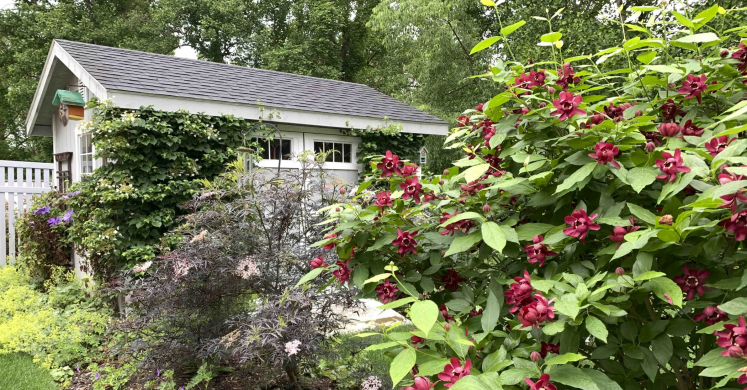
Small Gardens, Big Impact: An Award Winning Native Landscape
In these colder months, we are highlighting gardens of Western Pennsylvania that inspire us with their beauty and their positive impact on the environment.
Lyn Babcock of Mt. Lebanon received this year’s Phipps Sustainable Garden Award in the category of Native Plantings and Wildlife Gardens. Lyn’s garden is a paradise for both people and native wildlife.
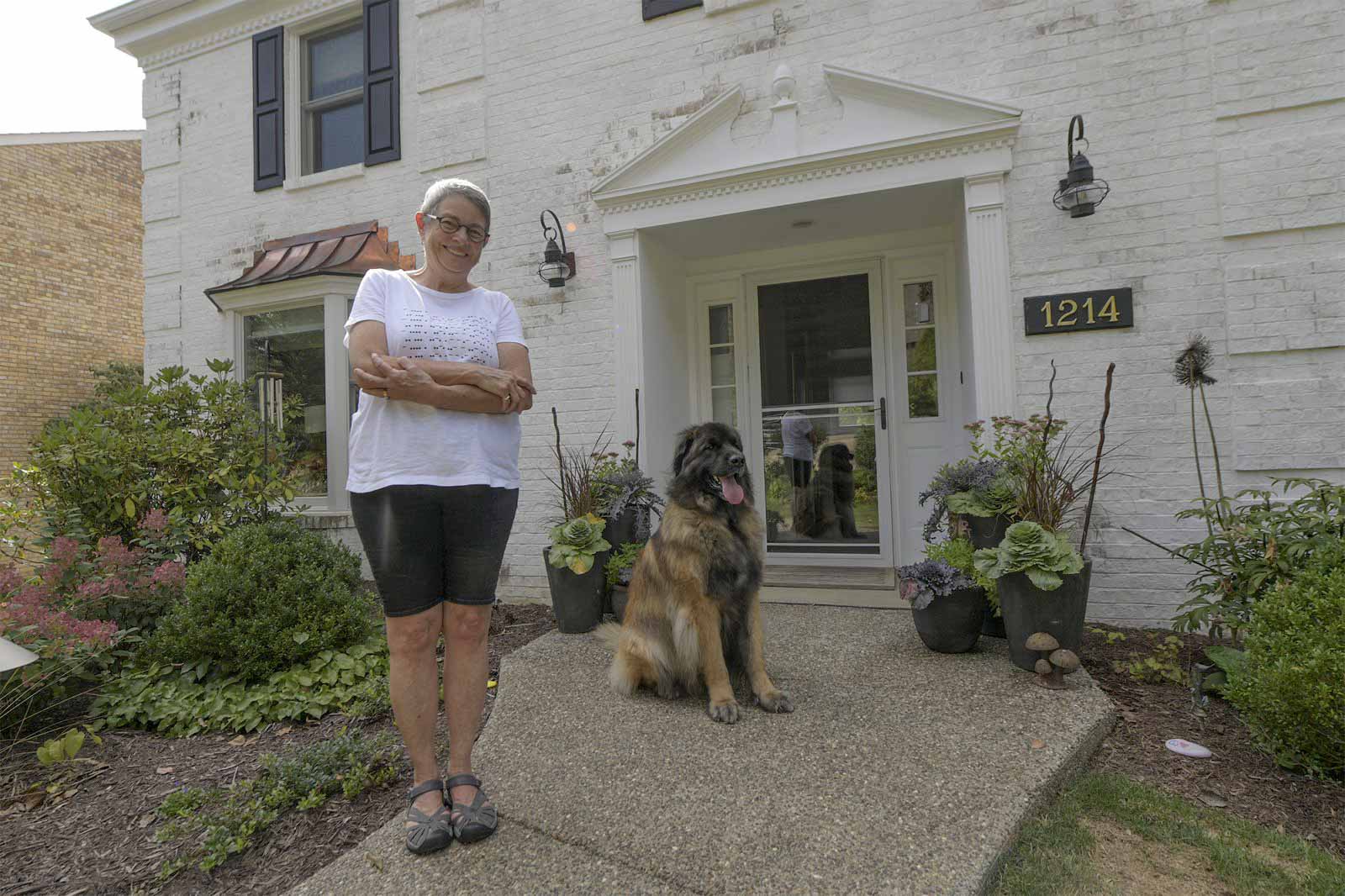
Since moving into their home in Pittsburgh in 2014, Lyn and her husband have been working to increase the native plants and pollinators in their yard. Native trees and shrubs that anchor the yard are serviceberry (Amelanchier), Fothergilla, oak leaf hydrangea (Hydrangea quercifolia), fringe tree (Chionanthus virginicus), Carolina allspice (Calycanthus), chokeberry (Aronia), spice bush (Lindera benzoin), bush honeysuckle (Diervilla), and red bud (Cercis canadensis). Native perennials included are blue star (Amsonia hubrectii), black cohosh (Cimicifuga), anise hyssop (Agastache), purple coneflower (Echinacea), milkweeds (Asclepias), Culver’s root (Veronicastrum), Joe Pye weed (Eutrochium purpureum), Indian pink (Spigelia), mountain mint (Pycnanthemum), aster (Asteracea) and goldenrod (Solidago). These plants provide food and homes for pollinators, birds and other wildlife. In addition to plants, Lyn has bird baths, suet, seed and nut feeders and bird houses to support birds.
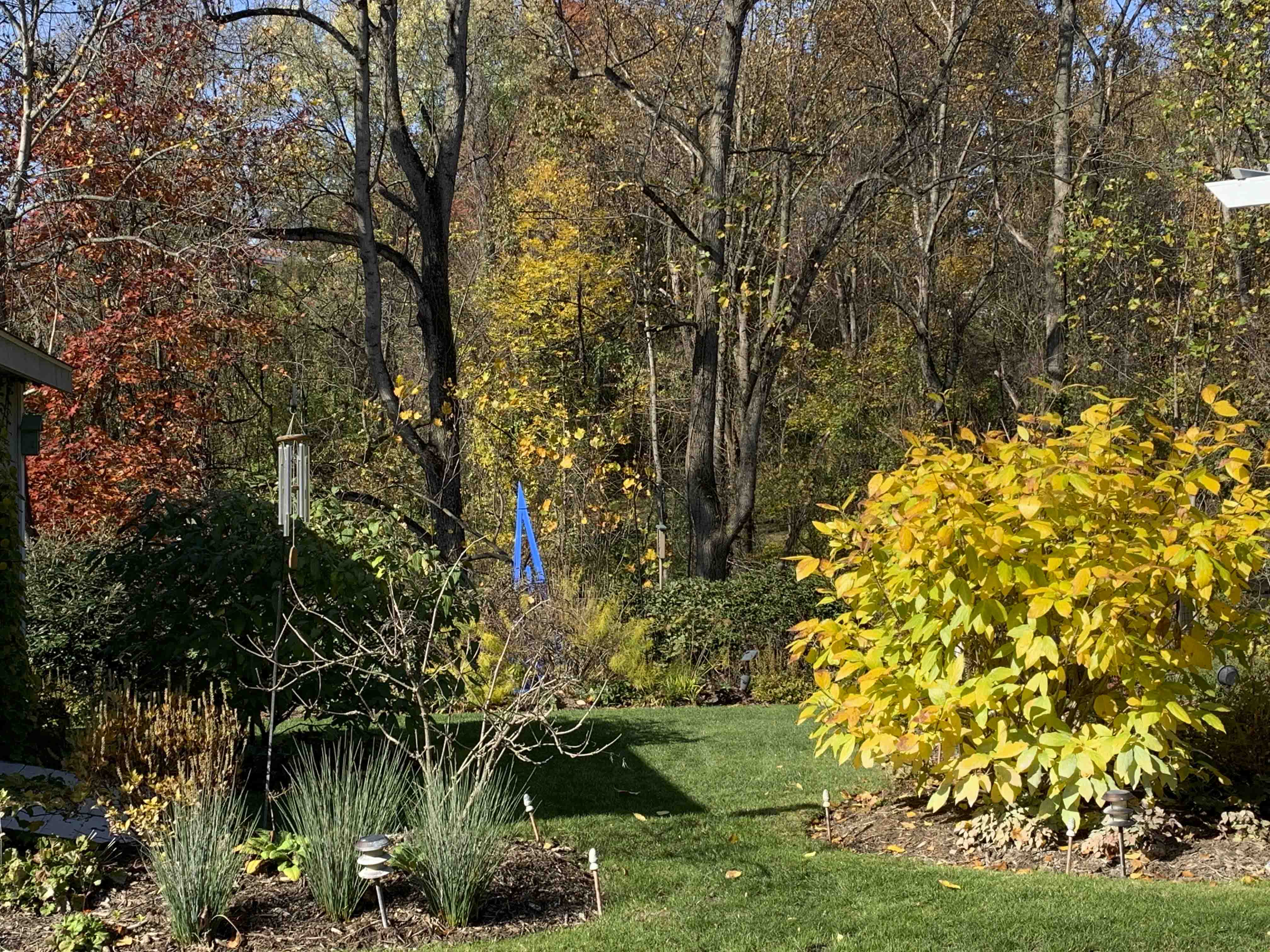
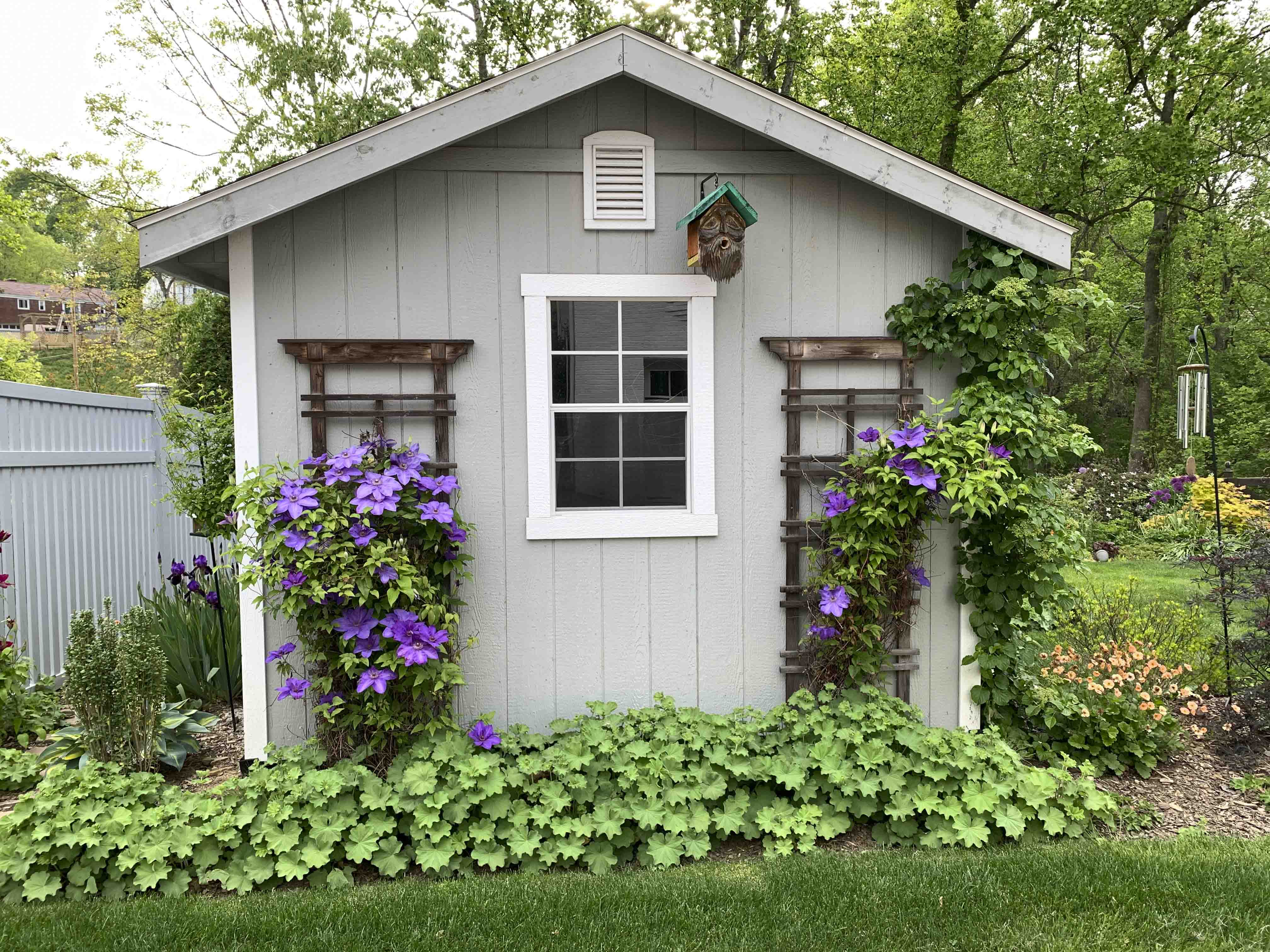
Lyn uses many sustainable practices to care for her garden without the use of synthetic fertilizers and pesticides. She walks her garden daily to check on her plants and carries an amazing toolkit with her, including a folding bucket, pruners, weeding tool, twine and scissors and an assortment of deer deterrent products. “When I spot problems early," says Lyn, "I can take care of them before they are out of control.” In addition to making frequent observations and being prepared, Lyn will use insecticidal soap to kill problem pests (such as white flies on hellebores) and remove plants with continued health problems and replace them with something better suited to the site. She explains that they had powdery mildew on a nine bark which they couldn’t get rid of, so after two years of fighting with it she decided to “hoick” it out! Lyn replaced it with spicebush, which is doing much better.
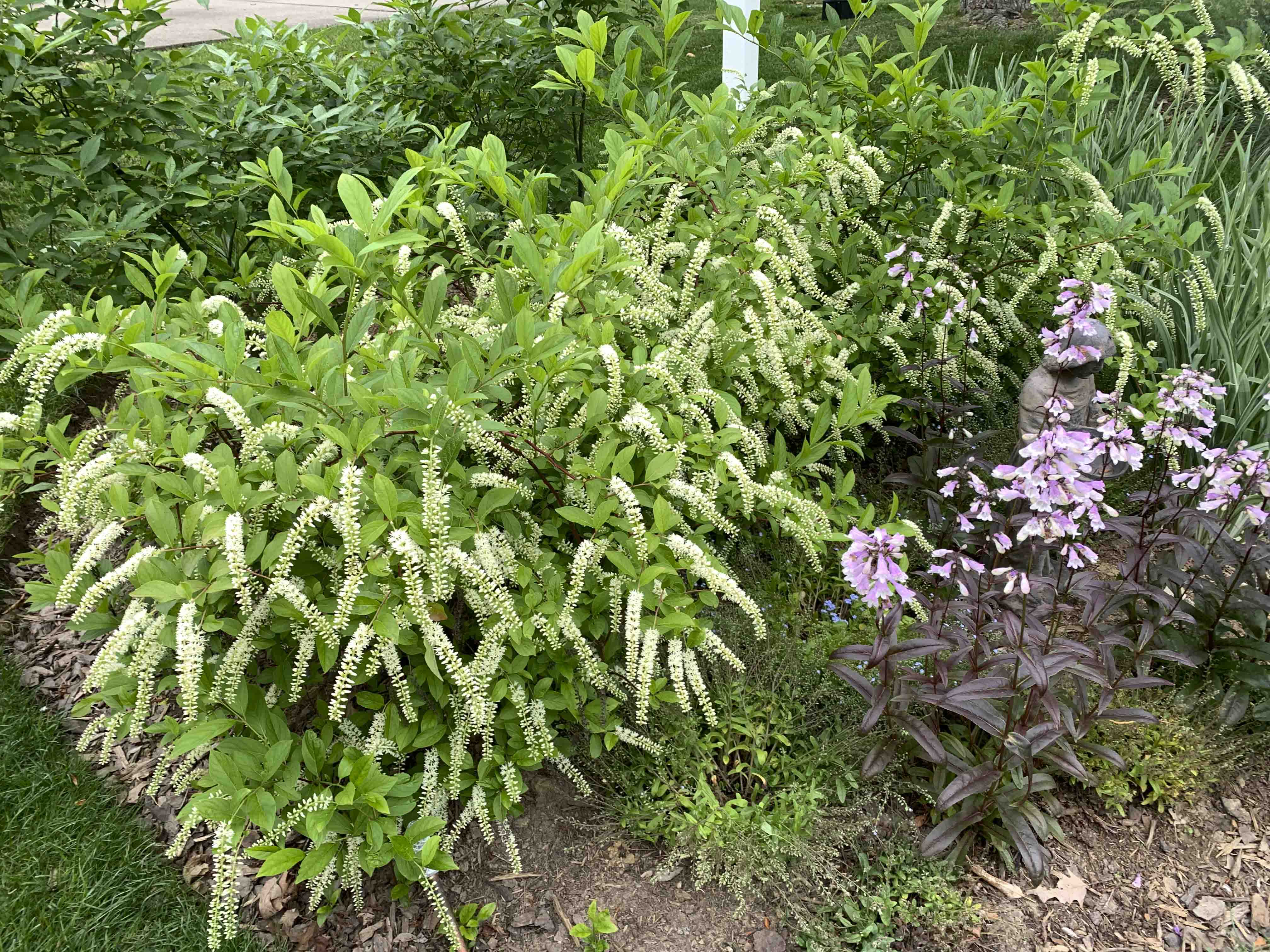
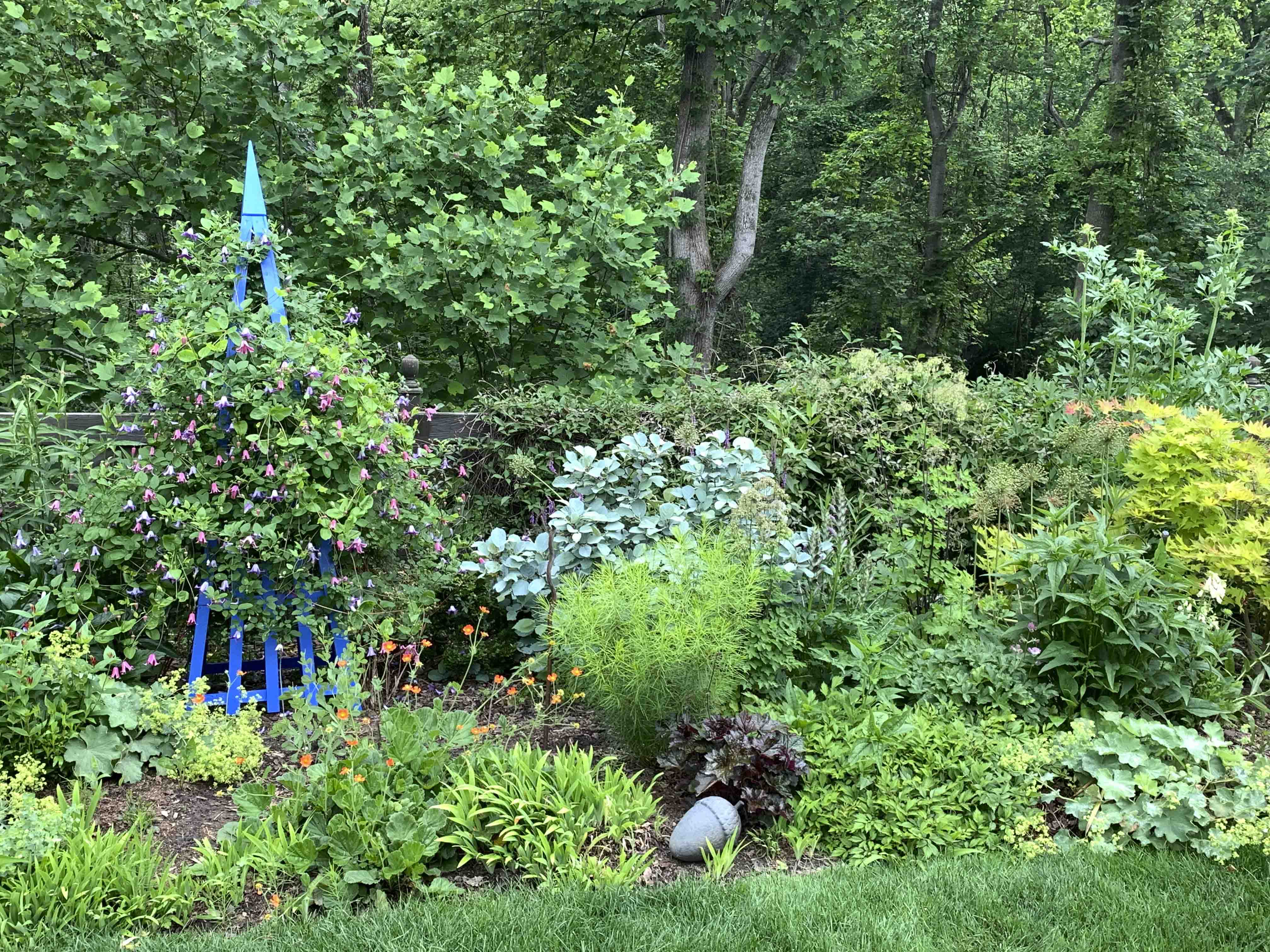
Lyn has also to been transitioning her lawn from conventional management to organic care and slowly increasing her garden beds and reducing the size of the lawn. Lyn says, “Pretty soon there will be paths and garden beds, and very little grass!” She manages her soil with the use of compost and mulch. Over time she has been able to improve her heavy Pittsburgh clay soil. Lyn also composts kitchen and yard waste. Of composting, she says, “It’s a slow process, but we like returning what we can to our garden instead of into a landfill.”
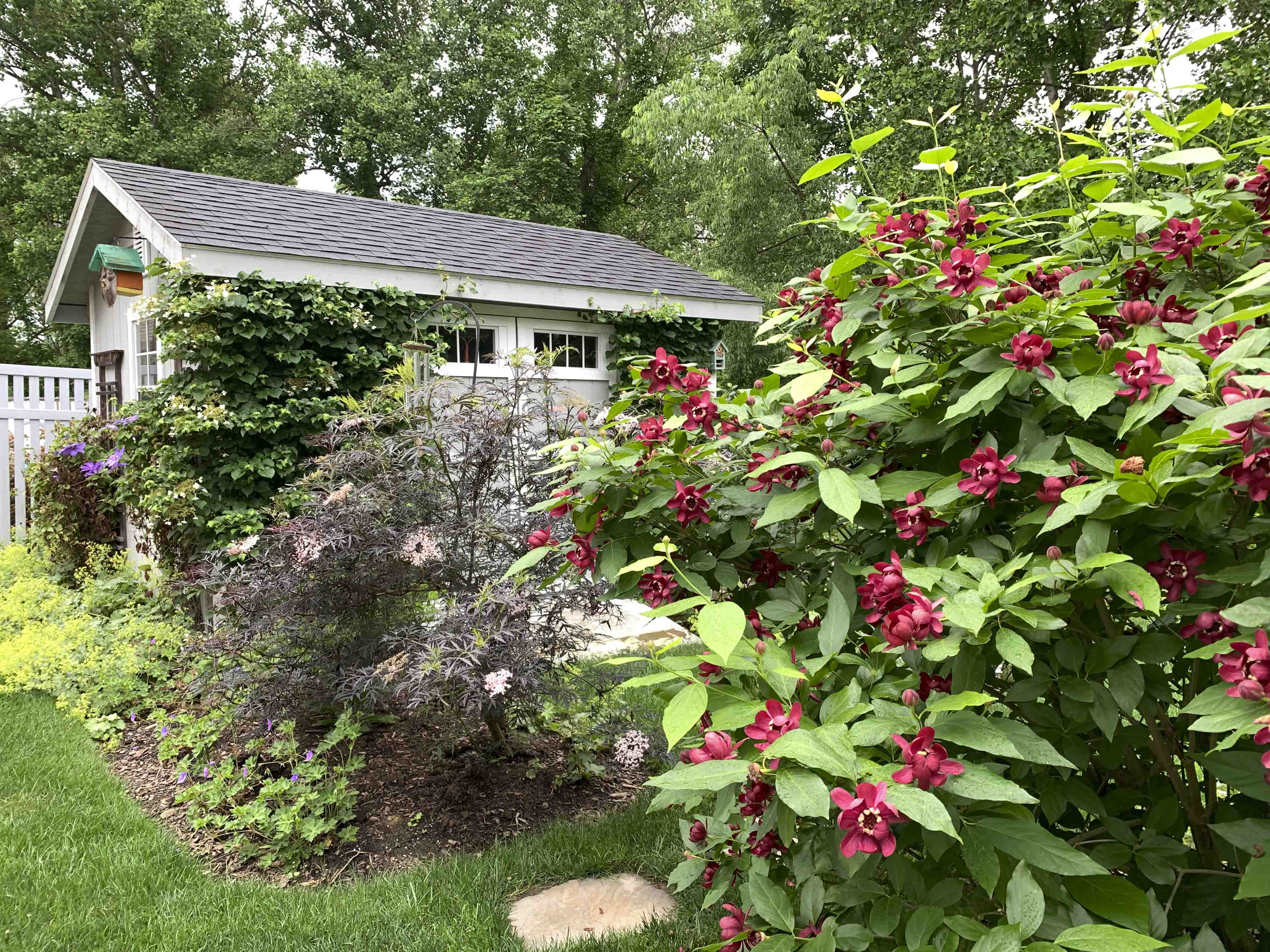
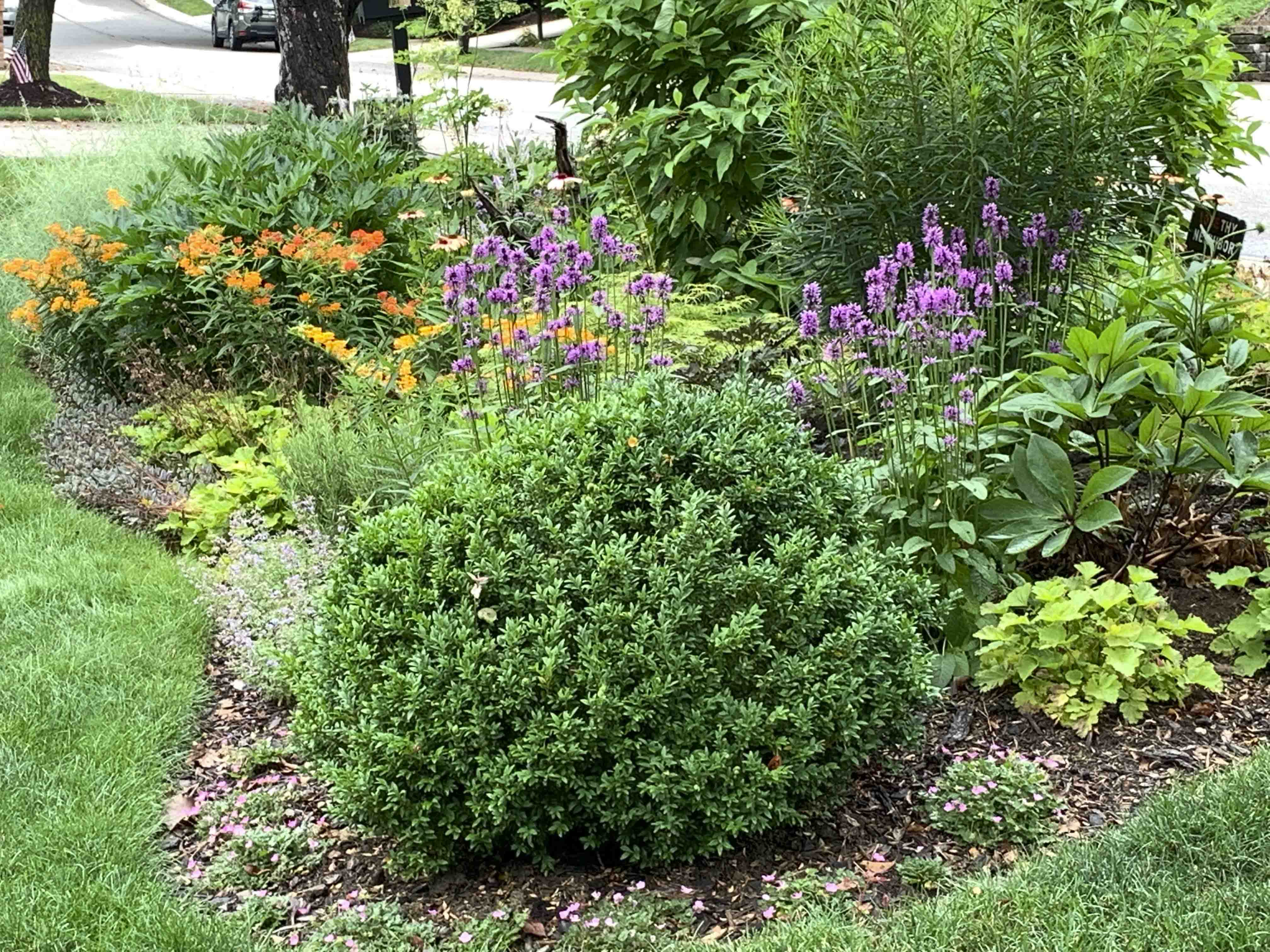
Lyn makes sure to include plants that show off in every season. “Fall is a particularly beautiful time for our garden," she notes. "The shrubs have shades of purple, red, yellow or orange, the grasses are reaching their peak, a few perennials have beautiful foliage and some of our trees have pops of color.”
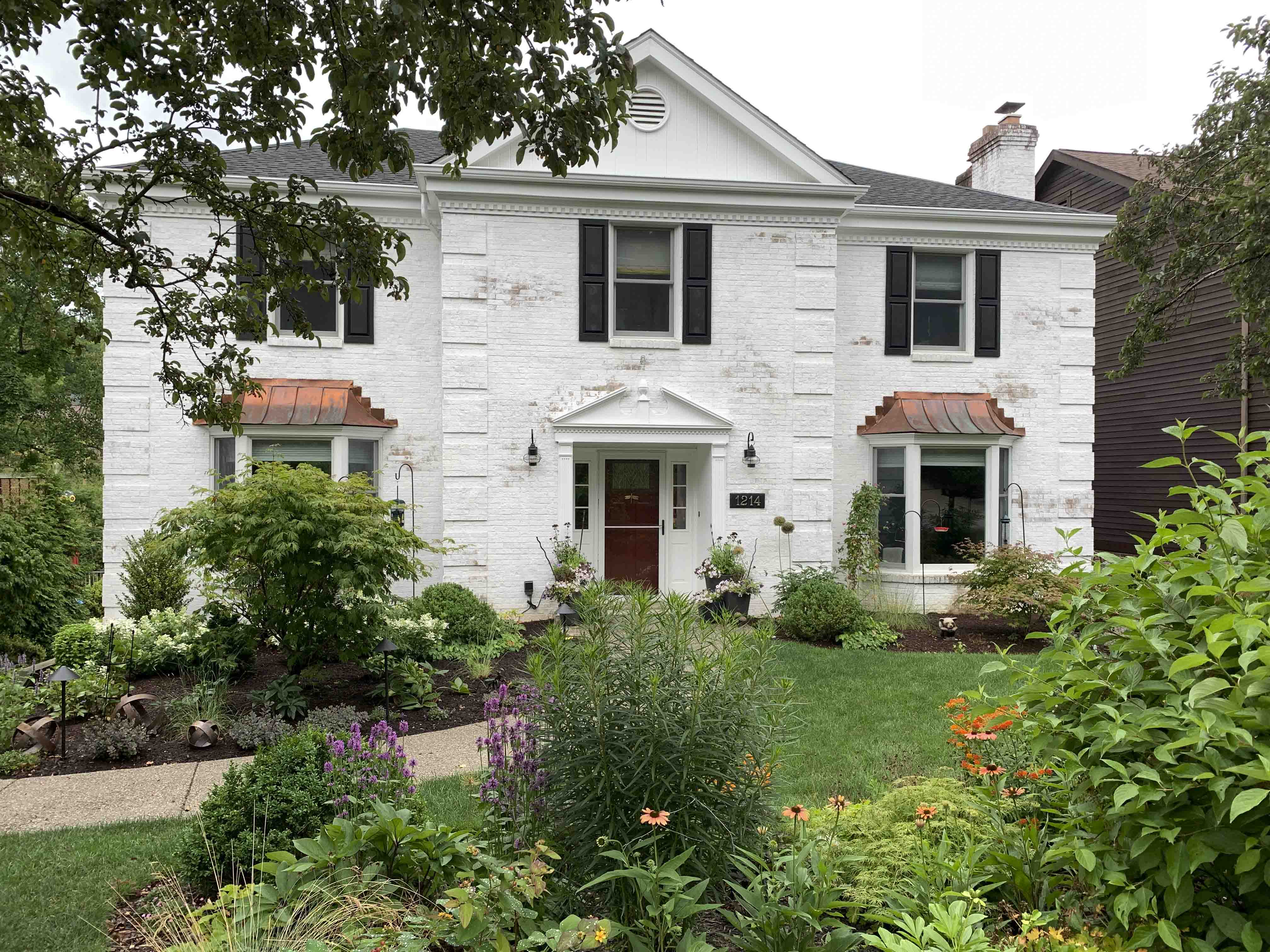
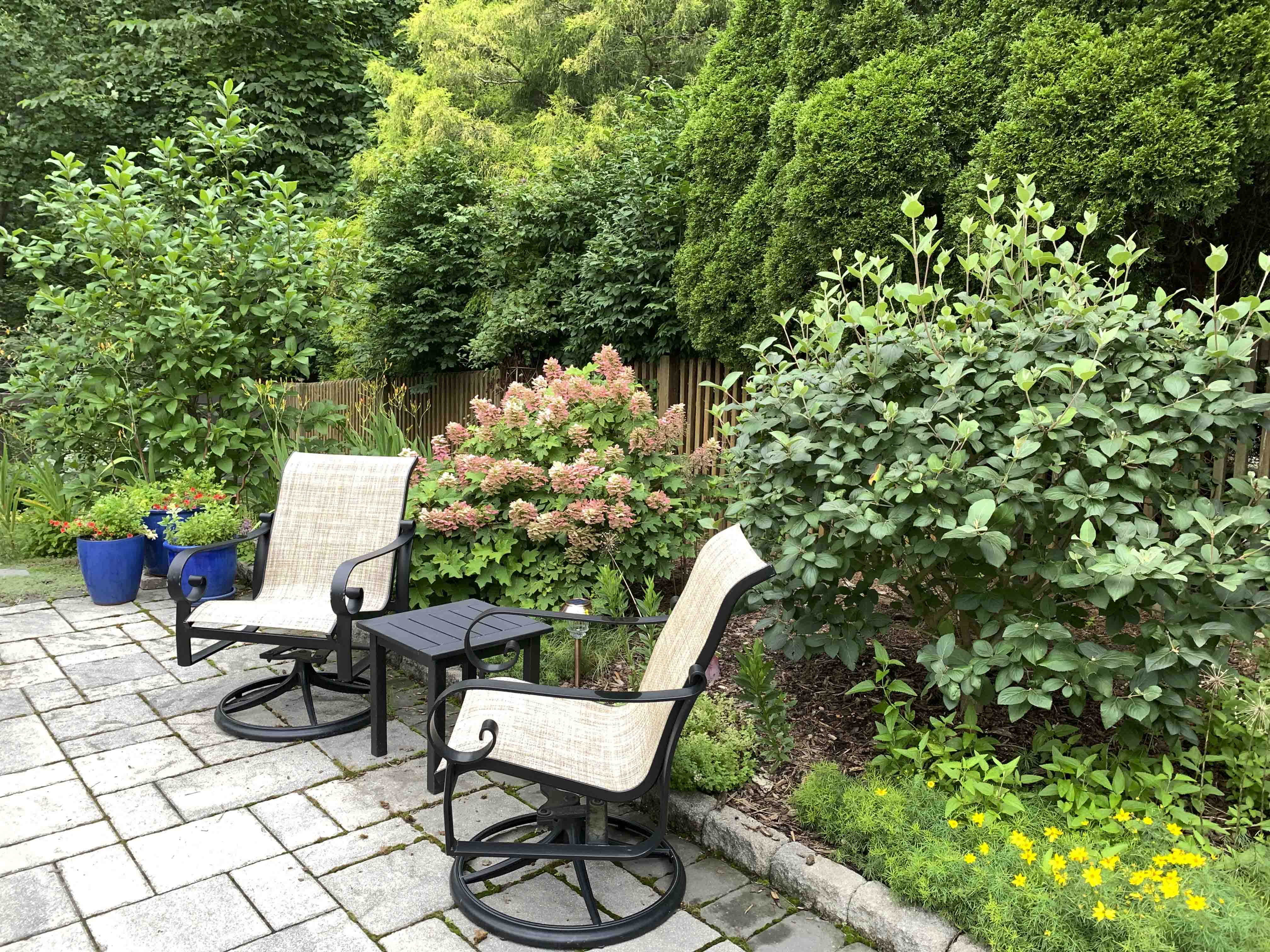
Learn about this and our other Sustainable Garden Award Winners by attending our Native Plant and Sustainability Conference on Thurs., Jan 27, or take a look at our Sustainable Garden Gallery for more garden inspiration.
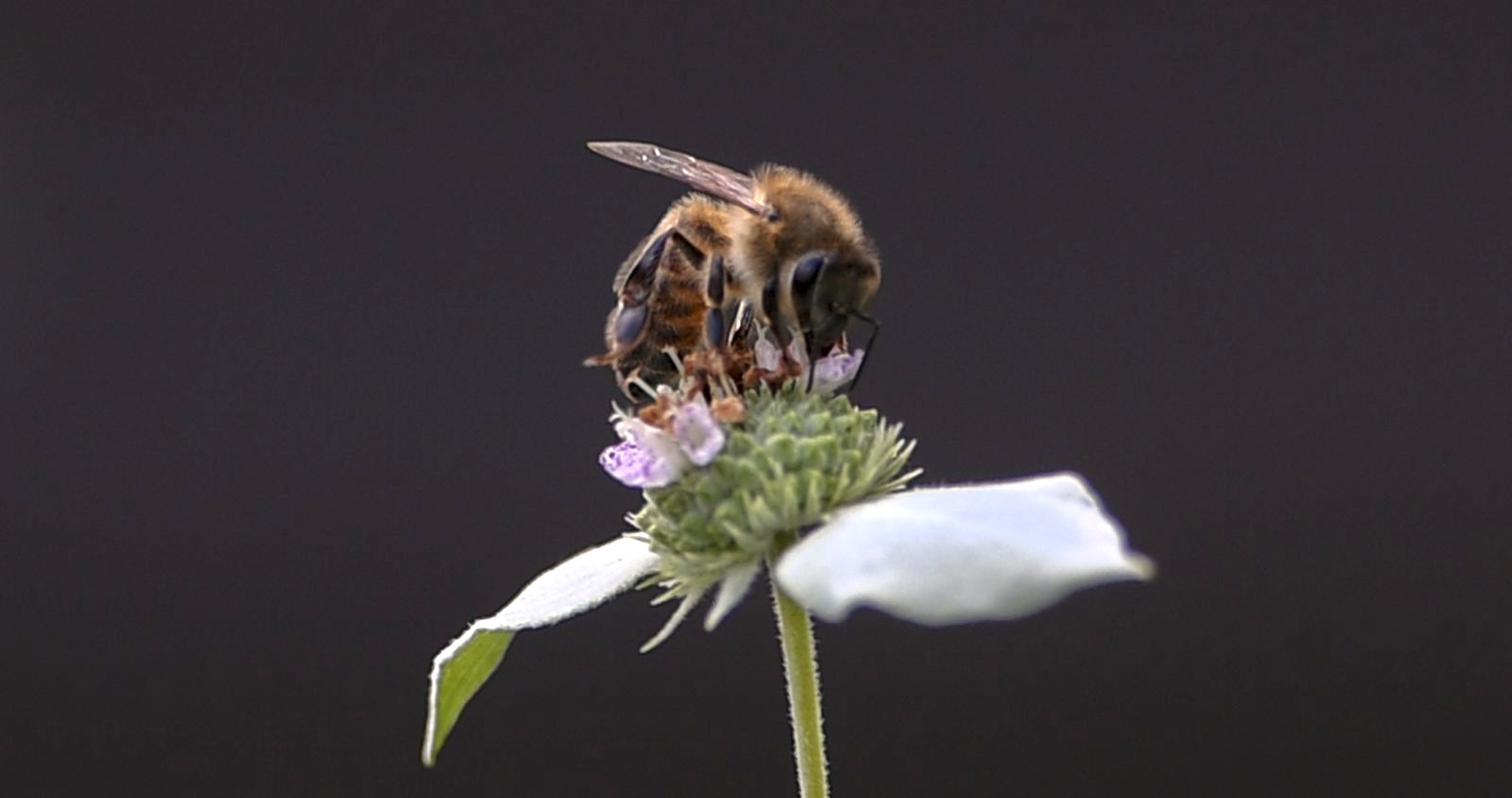
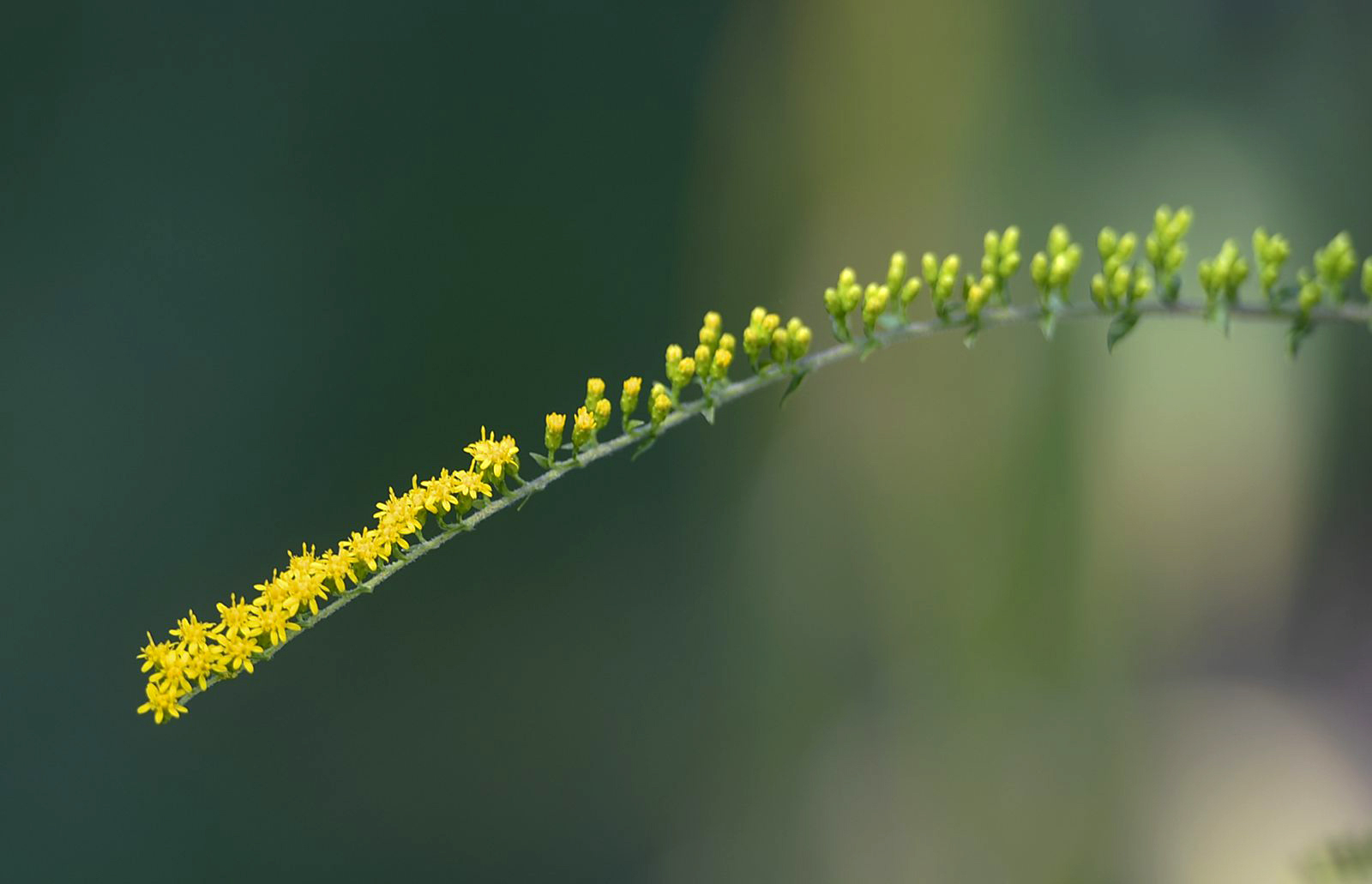
Select photos © Louis Ruediger / TribLIVE

